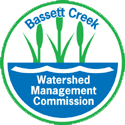News
Please don't feed the algae!
Wed, Sep 4, 2019Would you consider volunteering 15 minutes, twice a month, for cleaner waterways and healthier communities? Perhaps it sounds like a commitment that small couldn’t make a big impact, but, surprisingly, the simple act of keeping a storm drain clear of debris has a significant impact on our waters. Amazingly, just one pound of phosphorus—locked up in leaves in grass clippings—creates 500 pounds of algae when it gets washed to our lakes and creeks through storm drains! So, it’s easy to understand the significance of this small task.
Everyone knows that trash isn’t good for lakes and rivers, but many people unwittingly contribute to water pollution because they do not understand that “natural” debris—leaves, grass clippings, fertilizer, and pet waste—becomes pollution when it hits the water. When these natural pollutants break down, they become food for algae, causing it to grow out of control. The water gets green and soupy, so less sunlight gets through the water and thus prevents plant growth. Although we like to swim in lakes with sandy bottoms, lake plants play an integral role by using the nutrients and preventing excessive algal growth. A decrease in beneficial lake plants can actually lead to more algae and habitat loss for fish and other wildlife.
The Adopt a Drain program asks residents to adopt a storm drain in their neighborhood and keep it clear of leaves, trash and other debris to reduce water pollution. It’s easy to find a drain in your neighborhood and sign up online at adopt-a-drain.org. Once you sign up, just keep your storm drain clear of leaves, trash, and debris. Every once in a while, enter an estimate of the amount of debris you’ve collected on the website so your impact can be measured.
This program was just launched this spring and 122,409 pounds of debris have already been diverted from our lakes by 4,331 big-hearted adopters. Since this type of “non-point source” pollution, or pollution that comes from all over, is prevalent in urban and suburban areas, it takes everyone’s cooperation to minimize its effects. And when adopting storm drains becomes the norm, it will be a game changer for our lakes. Metro lakes struggle with excessive nutrients from leaves, grass clippings and dirt. Just keeping the streets clean and stopping debris from entering the storm drains is a small task for each homeowner, but a giant cannonball splash to keep our lakes swimmable, fishable, and navigable.
Helpful tools for clearing storm drains:
A broom, a rake, gloves, a snow shovel or dustpan, and a pail or yard waste bag. If you are clearing the drain on a busy street, consider investing in an orange cone and/or a safety vest.
Four tips for everyday pollution prevention
1. Leaves, grass and dirt feed algae and turn lakes and rivers green. Keep them off streets and sidewalks.
2. Trash clogs drains and pipes, causing flooding. Put it in a garbage can.
3. Dog poop carries harmful bacteria. Pick up after your pet.
4. Salt is almost impossible to remove from waterways. Just one teaspoon pollutes 5 gallons of water forever. Use it sparingly—keep granules 3 inches apart. Sweep up and reuse extra. Use sand when temperatures fall below 15 degrees.
Dawn Pape is outreach and education coordinator for the Bassett Creek Watershed Management Commission. Comments are welcome at dawn@lawnchairgardener.com. Get information at bassettcreekwmo.org.

